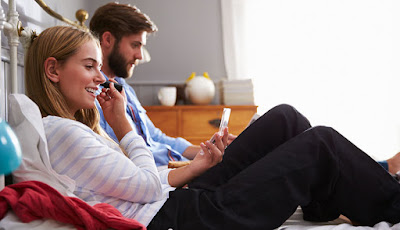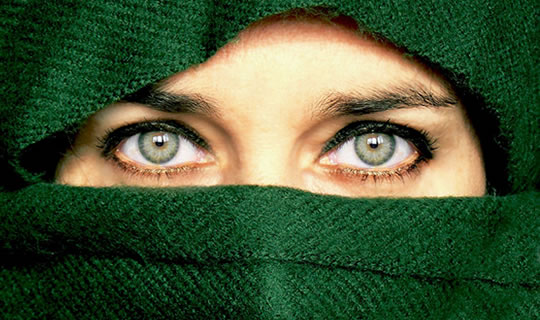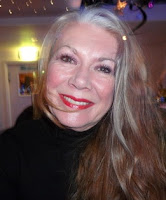 'When you find someone who loves you as you are, and you are able to love them as they are, it is an amazing experience. They may be different from you in many ways. They may view the world differently and have habits that you don’t share, but you can embrace these differences because they are part of this unique person you love'. ........ Susan
'When you find someone who loves you as you are, and you are able to love them as they are, it is an amazing experience. They may be different from you in many ways. They may view the world differently and have habits that you don’t share, but you can embrace these differences because they are part of this unique person you love'. ........ SusanHow To Find Unconditional Love In A Divorce-Obsessed World
 |
| Pixels |
It doesn't work for everyone... Will it work for you?
What does unconditional love REALLY mean, in this day and age?
It means loving someone regardless of conditions.
In other words, someone who loves a person no matter what they do, say, think, feel, look like, act like, or believe.
Loving someone even if your needs of connection, certainty and significance aren't being met by them.
Unconditional love means no-strings-attached to the love you give. You may or may not receive love back because that's not part of the deal.
If you had to receive it back, that would be a condition. You love them without expecting anything at all in return.
How do you get unconditional love?
In order to get it you must be willing and able to give it as well. It's a two-way street.
The two-way street is not a condition, it is based more on personal growth and attraction.
Most people want unconditional love so they have certainty that the person they are with won't leave them because of things they do or say — but are rarely willing to give the same in return.
If this is you, your need for unconditional love already has conditions.
Most people don't realise they have to work for it, they just want to receive it.
The reason you have to be willing and able to give it is because then you will attract other people to you who are able to do the same.
The confidence you develop when you recognise you are a whole and complete human being (all by yourself) is the same confidence that is so attractive to other people with confidence—the only other ones who will be able to provide you with no-strings-attached love.
When you have this confidence, you will be able to give love without expecting anything in return.
- You won't get your feelings hurt if your guy doesn't do what you think he should do or say what you think he should say.
- You won’t need his approval or acceptance of you so that you feel validated as a worthy human being because you already do.
- You will feel connected to him even if he doesn’t call on time, doesn't invite you out on the weekend or forgets your birthday.
- You may be upset but your love for him won't change because of it.
What's the point of unconditional love?
You may be wondering: "Then what would I need him for?"
That's just it.
You won't need him. You will want him and to be in a relationship with him out of desire.
Needing a relationship and wanting a relationship are two completely different things.
Most people feel they should be in a relationship to be whole or because society is rough on singles many times and alienates them or they feel uncomfortable and alienate themselves.
Some people pride themselves on giving unconditional love and tell people about it.
I'd venture a guess that them telling people about it is to gain acceptance and approval in which case the love they say they are giving is filling a need they have therefore is not unconditional.
Would these same people love the same way if they couldn't tell anyone about it?
What if you can't give unconditional love?
So, let's see if you're ready to give love unconditionally yet. There is no right or wrong answer; just an authentic awareness of where you stand that may take some pressure off of a need to find this elusive emotion or the key to how you can get it.
Let's say you love someone because they have certain qualities you like or status or treat you in a certain way.
Ask yourself if you would feel the same way about them if they didn't have or do those things you like so much; the things that attracted you to them.
Most people who are being honest with themselves will say, "No."
If you said, "Yes," congratulations.
You are much closer to getting unconditional love from someone else than most people are.
But if you said, "No," you’re in good company.
When we decide what we want in our lives and go after it, we have standards, and we hopefully also establish and enforce healthy personal boundaries around those standards.
This way, we don't hook up with someone who turns out to drag us down and wreck the plan we had for our lives?
Can our standards and plan change? Absolutely.
However, many people do fall into the trap of getting together with someone who lets their health go downhill or stops taking care of themselves within a few months.
This is common when someone who wants a relationship gets in shape simply to catch a mate and afterward, no longer feels the need to be diligent about staying healthy.
This, is self-centred and deceitful yet many people do it. It's a good example of someone falling for someone who isn't who they portrayed themselves to be.
I'm sure you've either been in that situation or know someone who has, right?
Here's an example of unconditional love:
One of your core values is honouring your body and keeping in shape.
You are in a relationship with someone who becomes very overweight, smokes cigarettes and has no intention of changing their habits.
Physical health just isn’t one of their priorities like it is yours. You love them just the way they are—physically healthy or not.
Can you hope they see the light and want to get healthy at some point? Sure, but your love isn't dependent upon if they do or not.
Now that you know what getting unconditional love entails on your part, do you still want it? If so, you are going to be so excited with the confidence you'll develop in setting yourself up for this kind of love that most people will never experience.
Previous articles:










